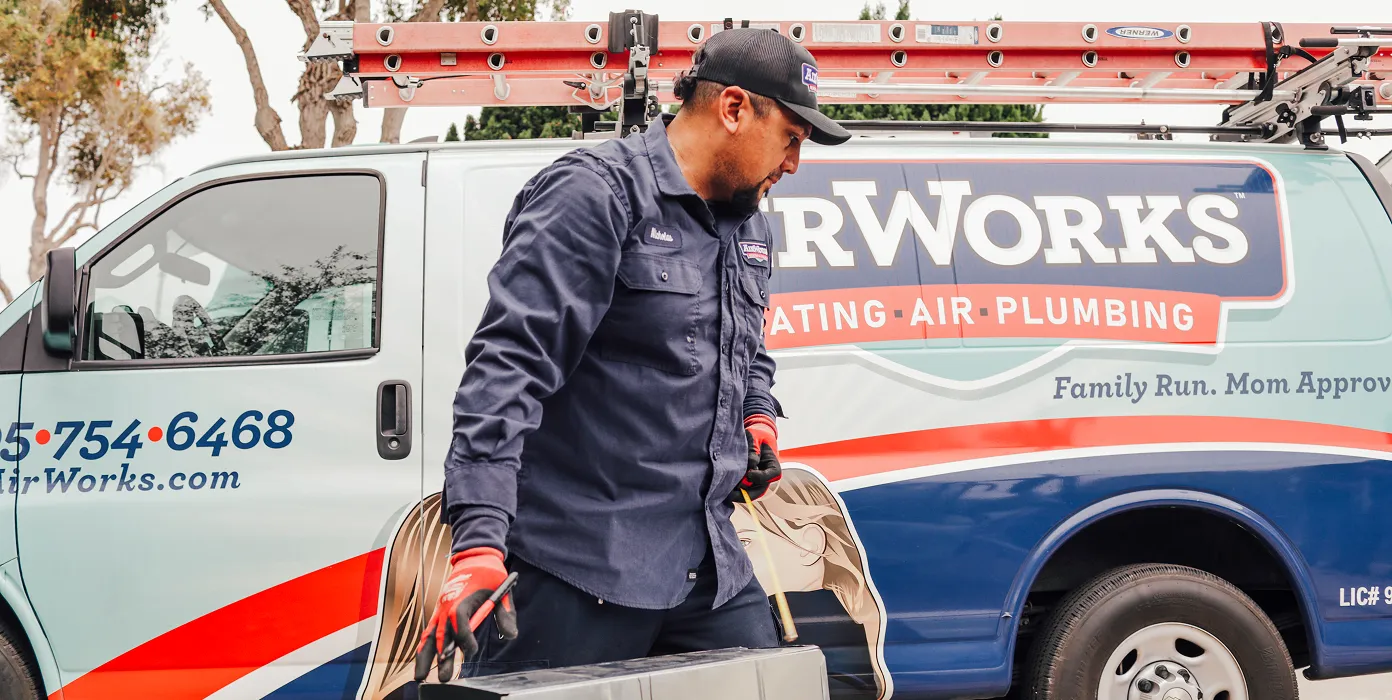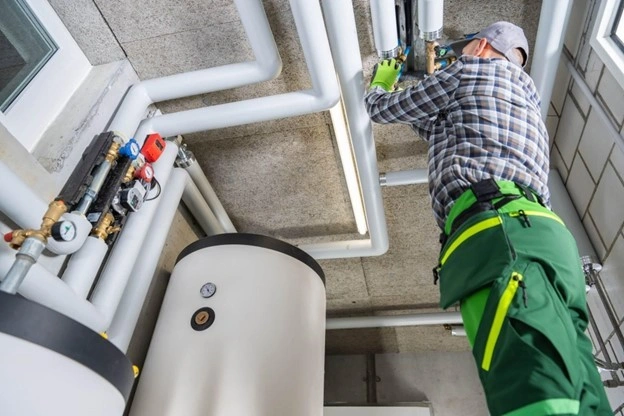Commercial Plumbing Maintenance in Newbury Park, CA
Serving Ventura & Sacramento Counties

Commercial Plumbing Maintenance in Newbury Park, CA
Keeping commercial properties running smoothly in Newbury Park, CA requires a plumbing maintenance program built for local realities: seasonal winter rains, persistent Southern California drought concerns, aging building stock, and the high service expectations of tenants and customers. Professional Commercial Plumbing Maintenance in Newbury Park, CA focuses on preventing disruptions, protecting health and safety, and ensuring code compliance for offices, retail centers, restaurants, HOAs, and property managers.
What commercial plumbing maintenance covers
A comprehensive maintenance offering for commercial properties typically includes:
- Routine inspections and system audits: scheduled walkthroughs and asset inventories to spot wear, leaks, and code risks before they escalate.
- Preventative drain and sewer maintenance: grease trap service, root intrusion management, hydro-jetting, and mainline camera inspections to prevent backups.
- Fixture servicing and retrofits: repair or retrofit toilets, urinals, faucets, and ADA-compliant fixtures to improve reliability and water efficiency.
- Water heater tune-ups: flushing tanks, checking anode rods, testing controls and pressure relief valves for consistent hot water delivery.
- Emergency response planning: pre-defined shutoff maps, prioritized response tiers, and contingency procedures to reduce downtime during a failure.
- Maintenance agreements tailored for commercial properties and property managers: customized schedules, reporting, and documentation to support budgeting and compliance.

Common commercial plumbing issues in Newbury Park, CA
Understanding common failure points helps design focused maintenance programs. Typical issues seen in Newbury Park commercial properties include:
- Grease and food-service clogs — restaurants and cafeterias generate grease build-up that leads to frequent blockages and health code violations unless proactively managed.
- Root intrusion and sewer corrosion — older sewer lines are susceptible to root entry and corrosion, especially after winter rains that raise groundwater levels.
- Slow drains and recurring backups — low-flow fixtures and accumulated debris can cause repetitive clogging in high-traffic restrooms and kitchens.
- Leaking fixtures and concealed pipe leaks — small leaks in tenant spaces or common areas waste water (a critical concern during drought) and damage finishes.
- Water heater inefficiency or failure — sediment buildup and scaling reduce capacity and can result in unexpected cold-water complaints.
- Backflow and cross-connection risks — irrigation systems and commercial process equipment require regular backflow testing to meet local code.
Diagnostics and inspection process
A disciplined diagnostic approach reduces guesswork and limits invasive repairs:
- Visual and operational checks of fixtures, valves, and accessible piping.
- Video camera inspections of drains and sewer mains to locate blockages, root intrusion, and line condition.
- Hydro-jet testing to confirm flow restoration and remove hardened deposits.
- Leak detection using acoustic or infrared tools to find concealed leaks behind walls or under slabs.
- Backflow preventer testing and documentation to satisfy municipal requirements.
- Detailed service reports with photos and prioritized recommendations for property managers.
Repair and maintenance solutions
Maintenance teams employ both preventive and corrective measures tailored to commercial systems:
- Hydro-jetting and mechanical cleaning to clear grease, scale, and debris from kitchen lines and mains.
- Trenchless repairs such as pipe lining for failing sewer sections to minimize disruption to tenants and landscaping.
- Fixture repairs and water-efficient upgrades to conserve water and lower utility costs while meeting ADA and Title 24 expectations.
- Scheduled grease trap and interceptor service to avoid costly backflow and sanitary issues.
- Water heater servicing or staged replacement planning to avoid sudden failures during peak use.
- Backflow assembly replacements and annual certification to protect potable systems.
Maintenance agreements for property managers
A commercial maintenance agreement aligns service frequency with asset risk and occupancy. Typical features include:
- Custom maintenance calendars based on property type (restaurant, office, retail, multi-family).
- Pre-scheduled inspections (monthly, quarterly, semi-annual) with digital records for each asset.
- Priority response tiers and emergency routing to reduce downtime.
- Predictive budgeting through life-expectancy forecasts and repair vs. replace analysis.
- Compliance documentation for health departments, insurance carriers, and municipal inspectors.
- Options for bundled HVAC and plumbing maintenance to simplify vendor management.
Emergency response planning and risk reduction
For commercial properties, an effective emergency plan limits business interruption and liability:
- Establish clear shutoff locations for domestic water, irrigation, and gas-fed fixtures.
- Pre-authorized repair levels to allow technicians to act quickly within agreed cost thresholds.
- Spare-parts strategy for commonly failing components to shorten repair times.
- Coordination protocols with property managers, tenants, and insurance for claims and repairs.
- After-action reports and improvements to reduce repeat events.
Recommended maintenance schedule (typical)
Consistency is key. Recommended cadences for Newbury Park commercial properties:
- Restroom and fixture inspections: monthly to quarterly.
- Grease trap/interceptor cleaning: monthly to quarterly, depending on load.
- Mainline camera inspection: every 1 to 3 years, or after significant storms.
- Hydro-jetting of high-use lines: annually or as indicated by performance.
- Water heater tune-up: annually.
- Backflow testing and certification: annually or per jurisdictional requirement.
- Leak detection sweep: annually or when unexplained high consumption occurs.
Why prompt commercial plumbing maintenance pays off in Newbury Park
Regular maintenance reduces the risk of costly emergency repairs, minimizes tenant disruption, and safeguards properties against water intrusion and mold—especially important in Newbury Park where seasonal weather and drought policies make efficient water use a priority. For property managers, documented maintenance programs simplify budgeting, satisfy regulatory inspections, and protect asset value over time. Proactive service translates into longer equipment life, fewer emergency replacements, and a stronger, safer environment for occupants.
A tailored commercial plumbing maintenance strategy for Newbury Park properties balances preventative care with efficient repair methods, clear documentation, and emergency preparedness—delivering reliable operations and lower long-term costs for owners and managers.
Prevent Emergencies With Proactive Commercial Plumbing Maintenance
Avoid costly shutdowns and protect your property’s value with structured commercial plumbing maintenance in Newbury Park, CA. AirWorks Solutions delivers targeted maintenance plans for offices, restaurants, HOAs, and multi-tenant buildings—covering routine inspections, hydro-jetting, water heater servicing, and backflow prevention. Designed for Newbury Park’s unique mix of drought restrictions, seasonal rains, and aging infrastructure, their tailored programs catch small issues before they become major failures—ensuring reliable performance, code compliance, and peace of mind for property managers and business owners.
Schedule Your Commercial Plumbing Maintenance Today For Reliable, Worry-Free Operation


